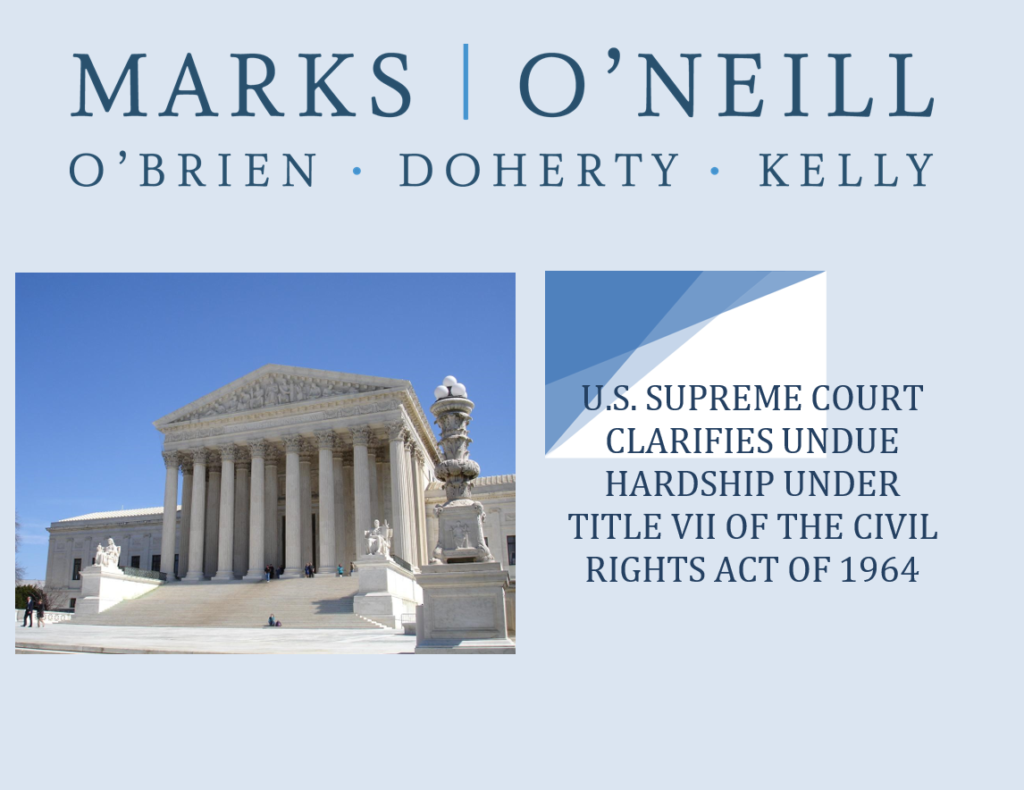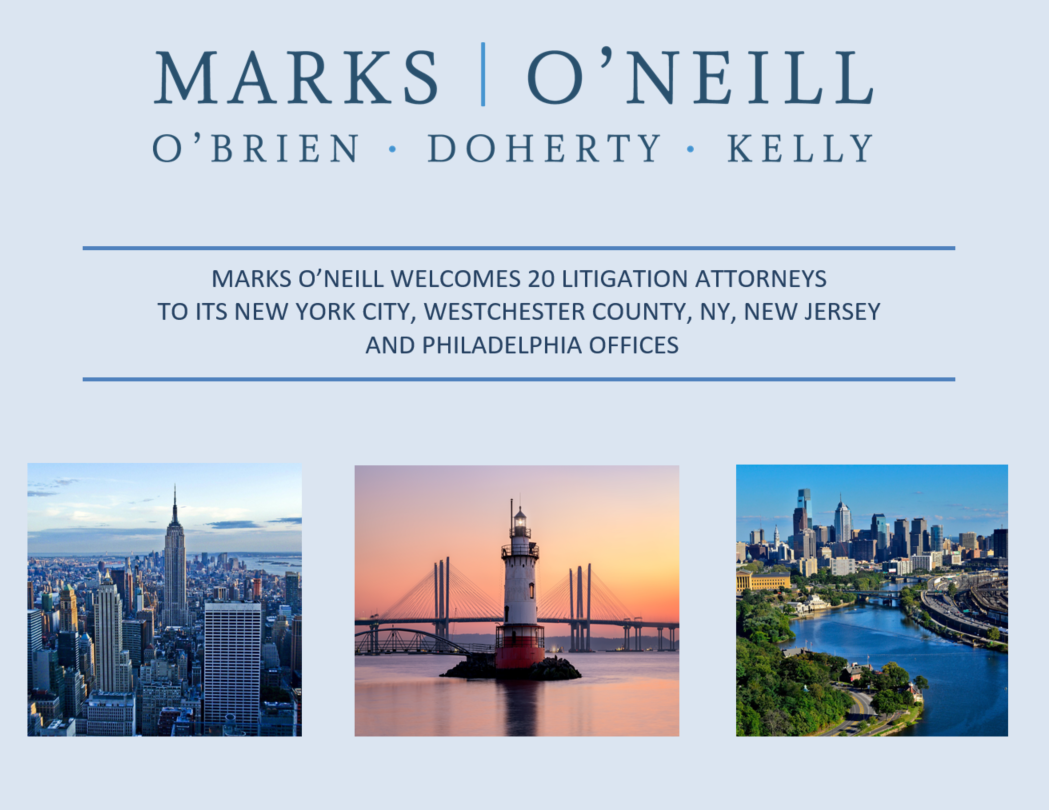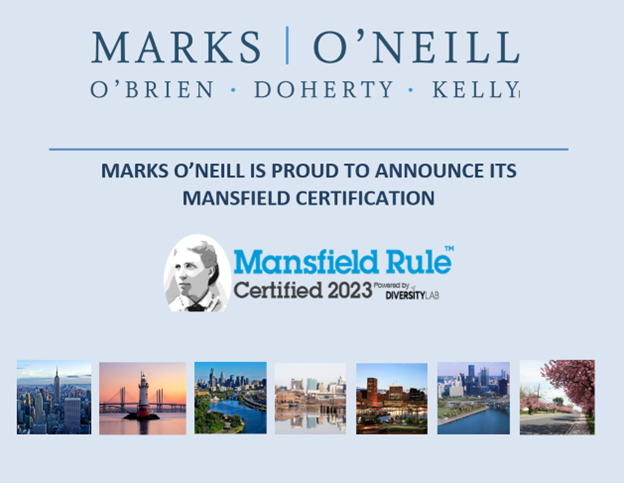
U.S. Supreme Court Clarifies Undue Hardship Under Title VII of the Civil Rights Act of 1964
On June 29, 2023, the U.S. Supreme Court clarified the standard for establishing when an undue hardship exists under Title VII of the Civil Rights Act of 1964 (“Title VII”). In Groff v. DeJoy, Postmaster General (2023) the plaintiff, Gerald Groff was an Evangelical Christian who believed that Sundays should be devoted to worship and rest. Groff took a job with the United States Postal Service (“USPS”), which generally did not entail him working on Sundays. This changed when USPS agreed to take Sunday deliveries for Amazon. Groff changed ] USPS locations where he worked, to an area that did not deliver on Sundays. Amazon deliveries eventually became part of Groff’s job at the new location, and he still was unwilling to work due to his religious beliefs. USPS redistributed his deliveries to other workers and Groff received progressive discipline for not working on Sundays. Groff eventually resigned believing that he would be terminated from his employment and sued alleging violations of Title VII based on his religion.
The Court was asked to define an undue hardship under Title VII and specifically overrule the de minimus test that lower courts had been using. The Court held that an employer must show that the burden of granting an accommodation would result in substantial increased costs in relation to the conduct of its particular business. The Court further clarified that all relevant factors should be taken into account including the particular accommodations at issue and their practical impact in light of the nature, size, and operating cost of an employer. Id.
In so ruling, the Court focused on its previous opinion in Trans World Airlines, Inc. v. Hardison requiring an employer to bear no more than a de minimis cost to establish undue burden. In relying on Hardison, the Court clarified the various definitions of “hardship” and determined that hardship is more severe than a mere burden and that “undue” requires the burden to rise to an excessive or unjustifiable level. The Court then overruled the lower circuits reliance on Hardison for its justification of the de minimis test.
The Court having clarified the undue hardship standard, reversed and remanded the case, finding it “appropriate to leave the context specific application of that clarified standard to the lower courts in the first instance.”
The Court’s holding heightens the standard that employers must show to defend against claims under the Civil Rights Act of 1964 in arguing that providing an accommodation would constitute an undue hardship. Employers must now show that granting an accommodation under this Act would lead to substantial increased costs or create some other burden that rises to an unjustifiable level. Employers can no longer rely on a mere inconvenience to the business or its other employees in order to establish an undue hardship and deny an accommodation. Moving forward, in determining whether to deny an accommodation, employers should consider the cost of the accommodation, the size of the company, and the effect the accommodation may have on the employer’s other employees. However, employers must be cautious when weighing the impact that the accommodation may have on fellow employees and ensure that the hardship would be legitimate rather than merely angering employees because they don’t agree with a person’s religion or beliefs.
At Marks, O’Neill, O’Brien, Doherty & Kelly, with offices located in Pennsylvania (Philadelphia and Pittsburgh), New Jersey, Delaware, New York (Manhattan and Westchester County), and Maryland, our dedicated and talented group of attorneys are available to defend employers in every aspect of employment-based litigation. We handle matters involving sexual harassment, sexual orientation, race discrimination, Title VII, various federal and state statutes, including the Americans with Disabilities Act, the Age Discrimination and Employment Act and the Family Medical Leave Act. We are prepared to aggressively mount a defense at every phase, from the initial claim through the administrative process and any ultimate litigation. We also review existing employment policies and practices to help clients minimize litigation risk. If litigation does result, a cohesive representation plan is essential to a successful resolution. We recognize the business realities faced by our clients and work with them to achieve business goals in a manner consistent with state and federal law.



